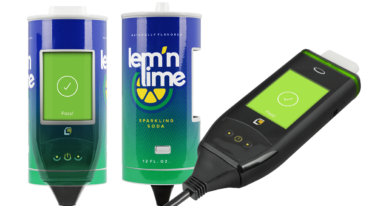
Driving Under the Influence vs Driving While Impaired
Understanding the difference between a DUI (driving under the influence) and a DWI (driving while impaired) is not as easy as putting the two definitions side by side. Why? Because it depends on how the state you live in classifies a “drunk driving” or “impaired driving” incident. In most cases, a DWI and a DUI are mutually exclusive and they both represent:
An offense where a driver was on the road while under some sort of influence, putting both the public and themselves at serious risk.
The consequences that come with a DUI and DWI are serious as well.
A DUI
It is safe to assume that you are familiar with the acronym DUI, which stands for “driving under the influence.” This is an offense most commonly given to drunk drivers whose blood alcohol content, or BAC, is above the legal limit. In other words, they have more alcohol in their system than is safe for them to reasonably and legally operate a vehicle.
DUI laws and the repercussions of the charge vary state-to-state. Here’s what happens when you get a DUI:
Understanding the DWI
Dissecting the DWI is a bit more difficult than understanding the ubiquitous “DUI.” In some states, it stands for “driving while impaired” and in others, “driving while intoxicated.” Often, a DWI is synonymous to a DUI. It’s a conviction passed by law enforcement that states the offender was not capable of driving their vehicle safely.
The truth is that there are many classifications for driving while intoxicated. In Maine and Rhode Island, the charge can be called an OUI, or “operating under the influence.” States continuously try to broaden the definition in hopes to catch more offenders in the act of operating while intoxicated. That’s why, in some states, a DUI can be issued even if the driver is not “actively driving” but has the keys in the ignition.
Using a DWI as a Measurement of Severity
In some states, the DWI is used specifically as a measurement of severity. This can mean that a DWI charge is a lesser offense than a DUI, with a different criterion that allows the charge to be passed. For instance, in Texas, a DWI can be either a class B or Class A misdemeanor.
A class A misdemeanor occurs when the driver’s BAC is higher than .15%, which increases the severity of the offense. Additionally, being that Texas is a “zero tolerance” state, meaning that anyone under the age of 21 cannot have so much as a trace of alcohol in their system and if the offender is under the legal drinking age, they will get a DWI. Someone of the legal drinking age, however, can receive a DUI.
DWI for Non-alcohol Related Offenses | What’s Worse?
A person can be charged with a DUI or a DWI even if they have not been drinking. If the police officer detaining them has reason to believe that they are impaired or intoxicated, they can call in a drug test and apprehend the driver. However, while it might be logical to believe that a DWI would differentiate the charge, it’s not the case.
Whatever acronym the state you live in decides to use will (typically) be the charge rendered, no matter if it’s prescription pills, alcohol, or any legal or illicit drug that impaired the driver. Interestingly enough, in states that differentiate between DWI and DUI, a DWI charge is almost always the more serious offense.
DWI vs DUI
The terms DWI and DUI are typically interchangeable and they’re both used for offenses in which a driver was not in a condition to drive safely, typically under the influence of alcohol. Both charges carry with them serious consequences including hefty fines, license suspension, and possible jail time.
The first offense of either crime is usually classified as a misdemeanor on your driving record and in some states—although not many—the term used is indicative of the charge’s severity.
Sources:
DUI Driving Laws, Published by NOLO. DUI Laws By State. Retrieved from:
Verywell Mind. What Is The Difference Between DUI and DWI? Retrieved from:
https://www.verywellmind.com/dui-vs-dwi-what-is-the-difference-67214
CA.GOV, State of California, Department of Motor Vehicles. Arrest for Driving Under the Influence DUI General Information. Retrieved from:
The Zebra. What’s the Difference Between DUI and DWI? Dec, 18. 2018. Retrieved from:


